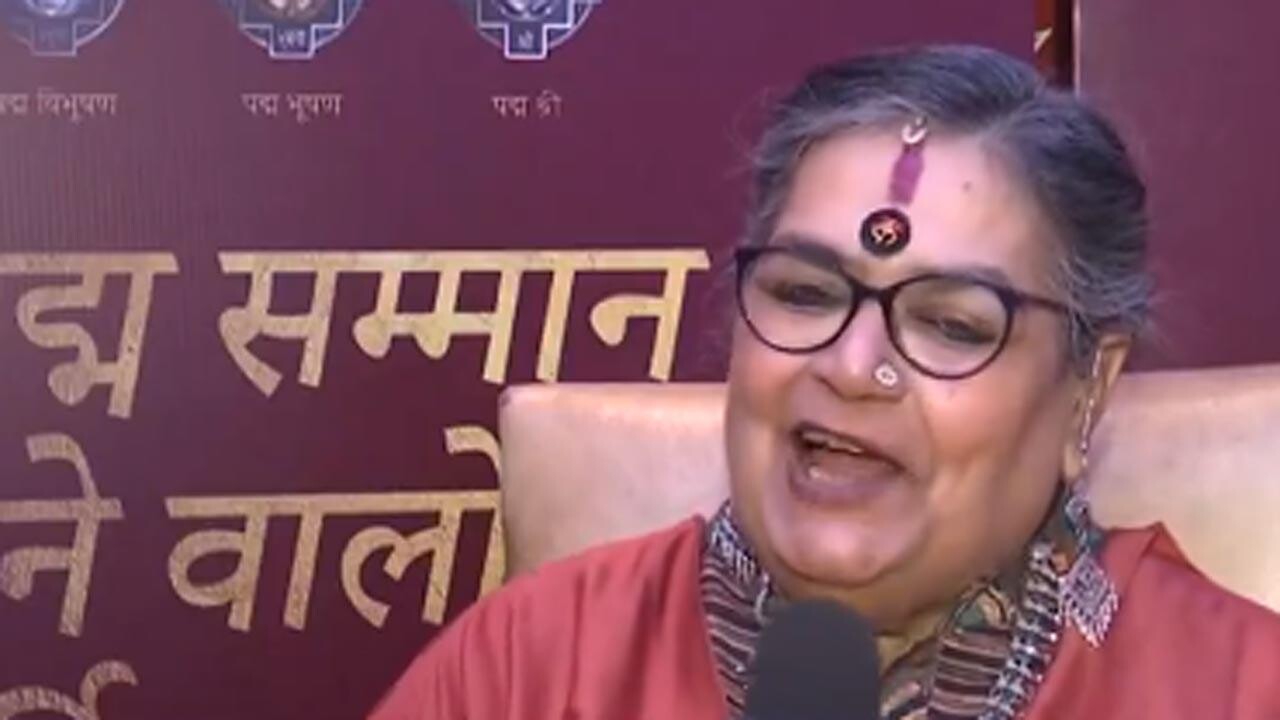
As the nation awaited the auspicious occasion of its 75th Republic Day, a wave of announcements brought joy and celebration to a diverse group of exceptional individuals. The Padma Awards, symbols of honor for the distinguished services and contributions of India’s sons and daughters, were unveiled with the dignity and grace befitting their legacy. Among the venerated recipients is the veteran singer Usha Uthup, whose voice has captured the heart of the nation for over five decades.
On this momentous eve, when the list of Padma Awardees shone with 132 names, including two duo cases, Usha Uthup’s joy knew no bounds. The singer, acclaimed for her vibrant and soulful performances, expressed to ANI an uncontainable happiness that was almost palpable. “I am so, so happy. I am overflowing with joy… tears are visible in my eyes, you all can see. For me, this is the biggest moment of my life… to be recognized and appreciated by your country and, of course, by your government. What more could one ask for, truly?” she remarked with an emotional heft that resonated with all who beheld her.
Her statement further echoed on social media where she noted, “This is the biggest moment of my life to be recognized by your country and government. It is a great thing that ordinary people like me have been selected for this award…”
Celebrating the essence of her award, Uthup highlighted the significance it held for artists from less conventional backgrounds. She illuminated the sentiment that while classical artists might eventually expect such recognition, it is indeed momentous for “ordinary people” like her to be honored with such a prestigious award. With a belief system rooted in peace and brotherhood, Uthup has devoted her life to the simple, yet profound goal of bringing joy to others through her music – an endeavor that has now been recognized at the apex of national commendation.
Uthup’s illustrious career has been adorned with numerous hit songs, including ‘Ramba Ho Ho’, ‘Hari Om Hari’, ‘Koi Yahan Aha’, ‘One Two Cha Cha Cha’, and ‘Darling’, to name a few. Her distinctive style and potent voice have carved out a niche for her within the Indian music industry, transcending genres and generations.
This year, the Padma Bhushan, the award category in which Uthup has been honored, celebrates a total of 17 distinguished recipients. Notable alongside her is the actor and politician Mithun Chakraborty and Pyarelal Sharma of the famous music duo Laxmikant-Pyarelal. They, along with the other awardees – five Padma Vibhushan, 17 Padma Bhushan, and 110 Padma Shri laureates – encapsulate a panorama of excellence across various fields of endeavor.
Among these diverse recipients, 30 are women and there is an inclusion of 8 persons from the foreign non-resident Indian (NRI), person of Indian origin (PIO), overseas citizenship of India (OCI) categories, as well as nine individuals honored posthumously.
Introduced in 1954, the Padma Awards rank amongst the highest civilian awards in India. These honors are divided into three categories: Padma Vibhushan for exceptional and distinguished service, Padma Bhushan for distinguished service of a high order, and Padma Shri for distinguished service in any field. A key attribute of these awards is the recognition of public service within the merit of the achievements.
These awards are not dispensed lightly. The selections are made through the recommendations of the Padma Awards Committee, formed annually by the Prime Minister. Chaired by the Cabinet Secretary, the committee includes the Home Secretary, the Secretary to the President, and several eminent persons. Their considered recommendations are then presented to the Prime Minister and the President for final approval.
Thus, as Usha Uthup stood with humbled pride, her award signified not only a personal pinnacle but also the nation’s acknowledgment of an artist who has touched the lives of millions with her infectious spirit and artistry. As the Republic celebrated its ideals and promise, Usha Uthup stands as a beacon of the cultural wealth and joyous unity it embodies.










